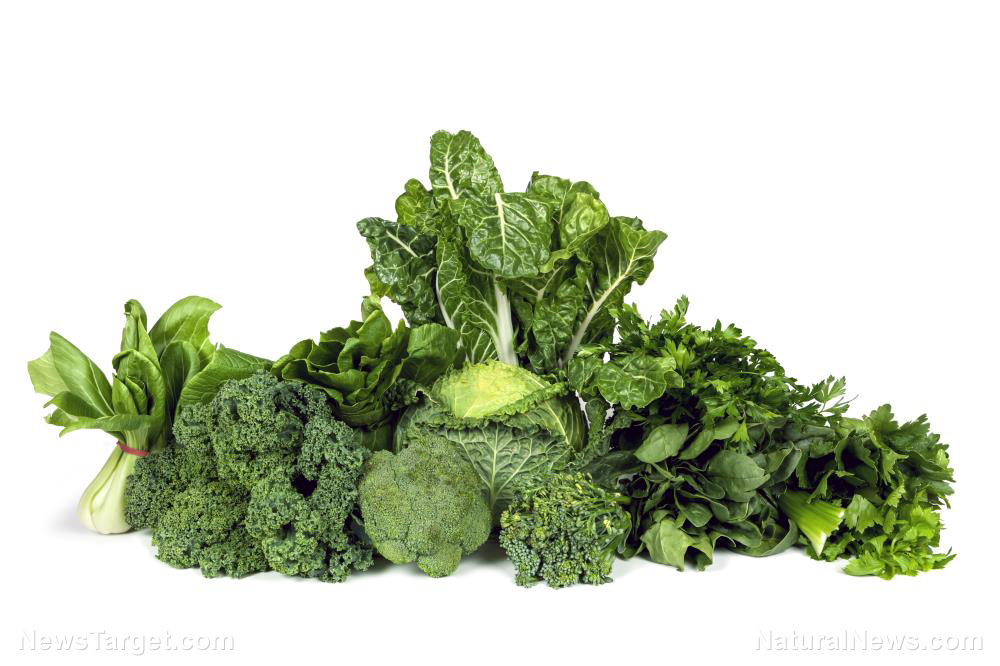
Glaucoma is an eye problem that typically occurs when fluid in the front part of the eye increases and causes pressure, which in turn damages the optic nerve. This condition can result in loss of vision.
For the study, the research team followed about 64,000 participants in the Nurses' Health Study from 1984 to 2012. They also followed over 41,000 participants in the Health Professionals Follow-up Study from 1986 to 2014. The participants were all aged 40 and above and did not have glaucoma at the start of the study. They had eye exams every two years.
Throughout the follow-up period, nearly 1,500 participants developed glaucoma. To determine whether diet played a role in the onset of the eye disease, the research team evaluated the diet, particularly the consumption of green leafy vegetables, of the participants. Then, they grouped the participants into five according to how much green leafy vegetables they consumed. Those who consumed the most amount of green leafy vegetables averaged about 1.5 servings a day, or approximately one and a half cups each day; while those who ate the least amount averaged about one serving every three days.
Although there was an association between consuming more leafy greens and a lower risk of glaucoma, it did not prove cause and effect. However, study leader Jae Kang explained that green leafy vegetables contain nitrates, which are precursors to nitric oxide. Nitric oxide plays a key role in regulating blood flow to the eye, and in glaucoma, there is an impairment of blood flow to the optic nerve. As an individual eats more leafy greens, the levels of nitric oxide in the body also increase.
Kang is an assistant professor of medicine at Brigham and Women's Hospital and Harvard Medical School in Boston.
Preventing glaucoma with diet
Earlier research has suggested that eating the right foods may help cut the risk of glaucoma, prevent the disease, and help keep eyesight healthy for many years. The study, published in the Archives of the Spanish Society of Ophthalmology, assessed the diets of people in two American ophthalmological studies, and in a study from Rotterdam in the Netherlands.
These large population studies found that consumption of foods rich in retinol, which is a form of vitamin A, helps lower the risk of glaucoma. However, there was no evidence that a diet rich in dietary fats promote the development of glaucoma, although too much fat intake is generally known to cause obesity and cardiovascular disease.
As the researchers dug deeper, they observed a link between lower rates of glaucoma and greater intake of leafy green vegetables, especially cabbage, carrots, fruits, and fruit juices, especially orange-colored fruits like peaches and apricots. In addition, the Spanish study suggested consuming flavonol-rich foods, such as green tea, dark chocolate, coffee (without sugar and little cream), and regular black tea. However, those who already have well-established cases of glaucoma should consume little or no caffeine because it can increase intraocular pressure and worsen the disease. (Related: Reduce glaucoma risk by drinking more green tea.)
In the study, the researchers provided a set of guidelines for lowering glaucoma risk:
- Eat plenty of colorful fruits and vegetables.
- Patients with hypertensive glaucoma should not consume too much salt.
- Avoid high-calorie diets to prevent body fat increase.
- Try eating foods rich in omega-3 fatty acids like fatty fish and nut as they seem to reduce risk.
- Drink small amounts of liquid throughout the day. Don't drink large amounts in one shot.
- Drink red wine and green tea and eat dark chocolate moderately.
- If you already have glaucoma, do not consume caffeinated drinks.
Read more news stories and studies on foods that keep the eyes healthy by going to SuperFoods.news.
Sources include:
Please contact us for more information.























